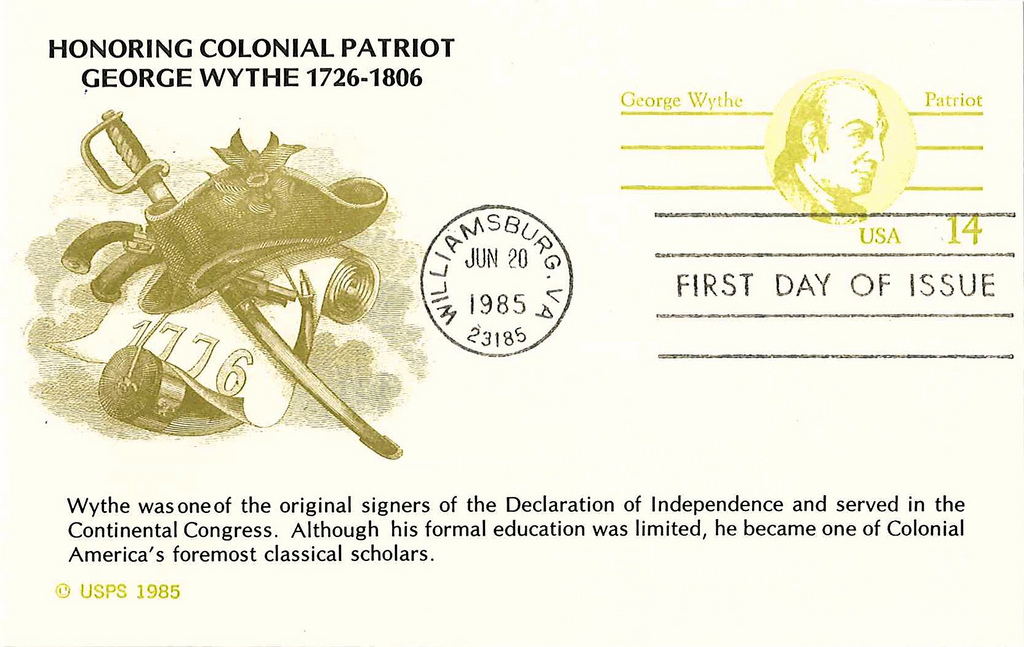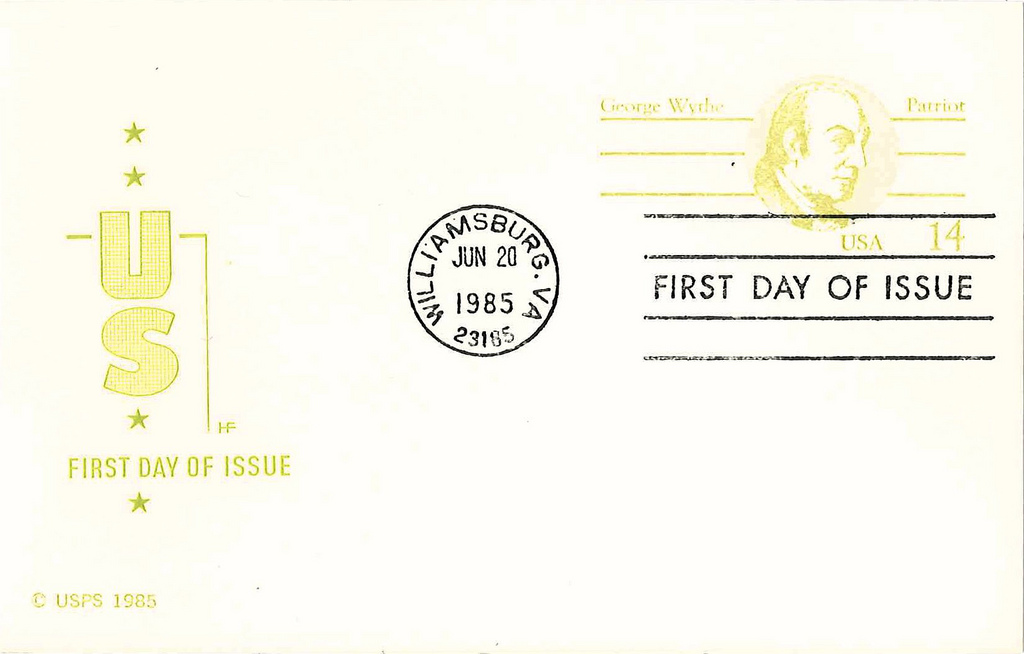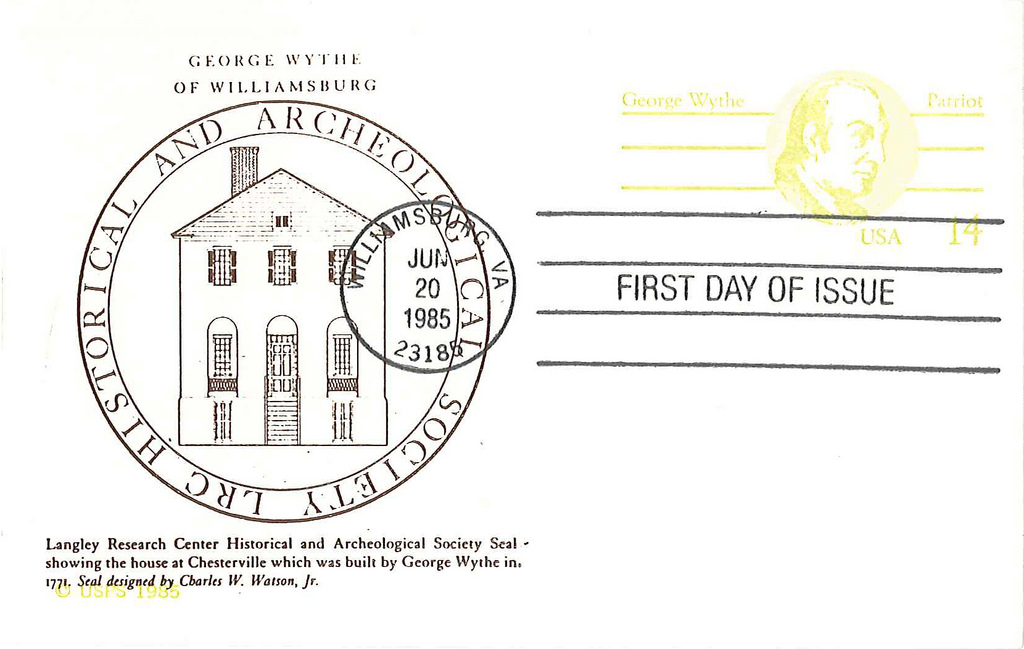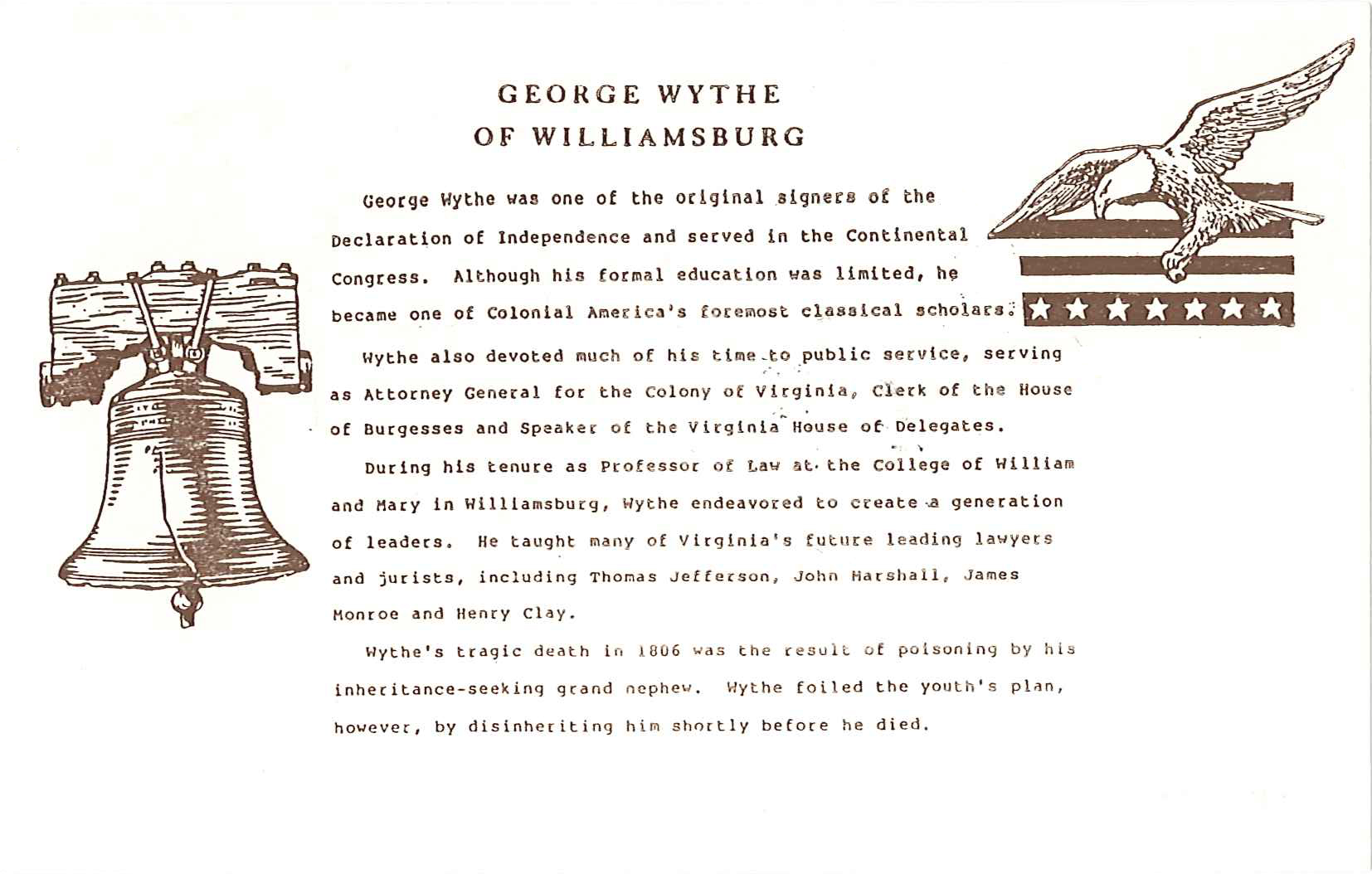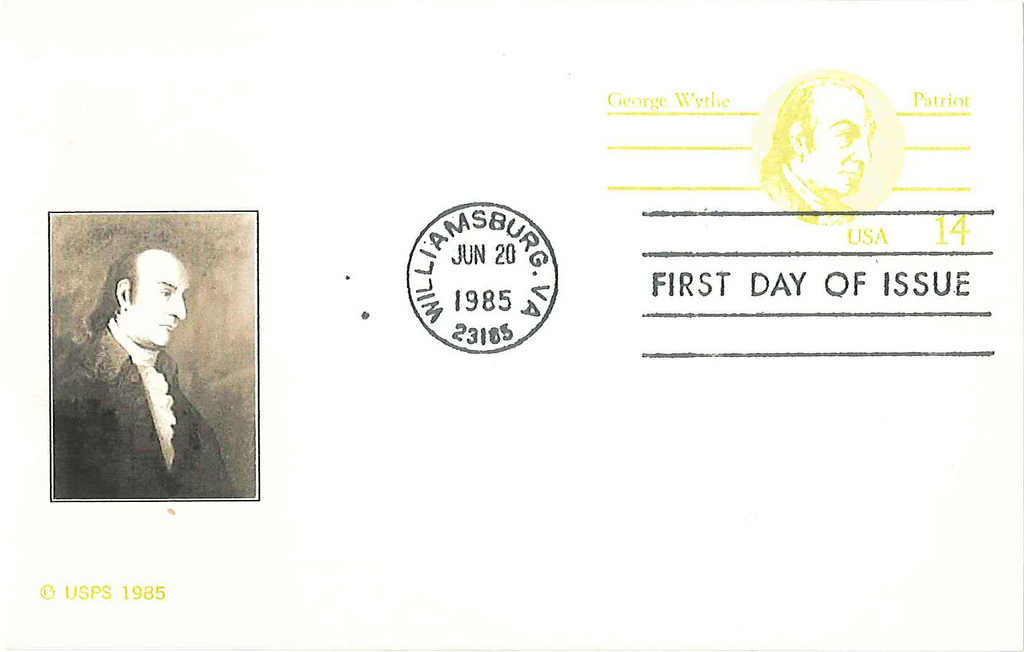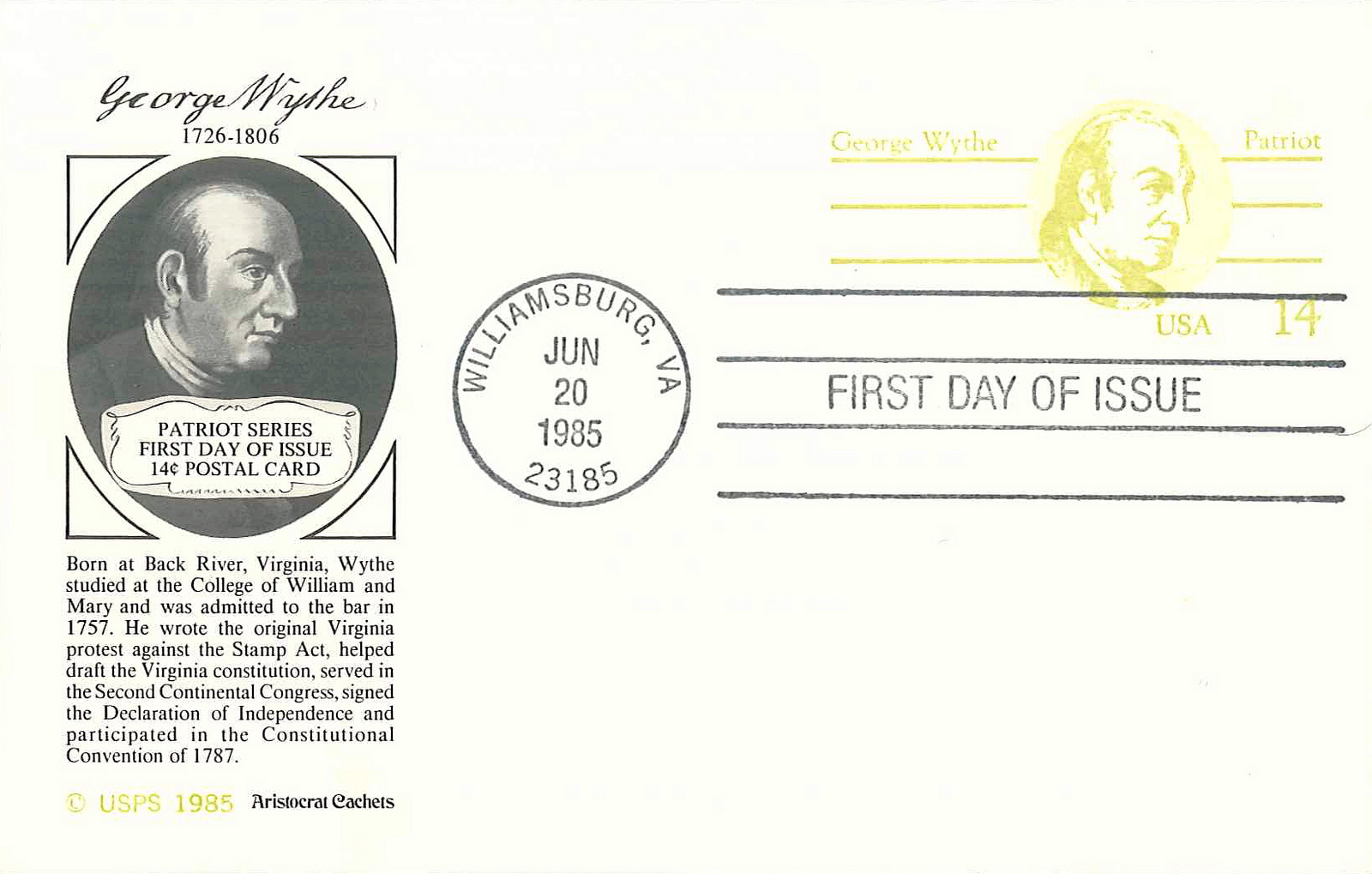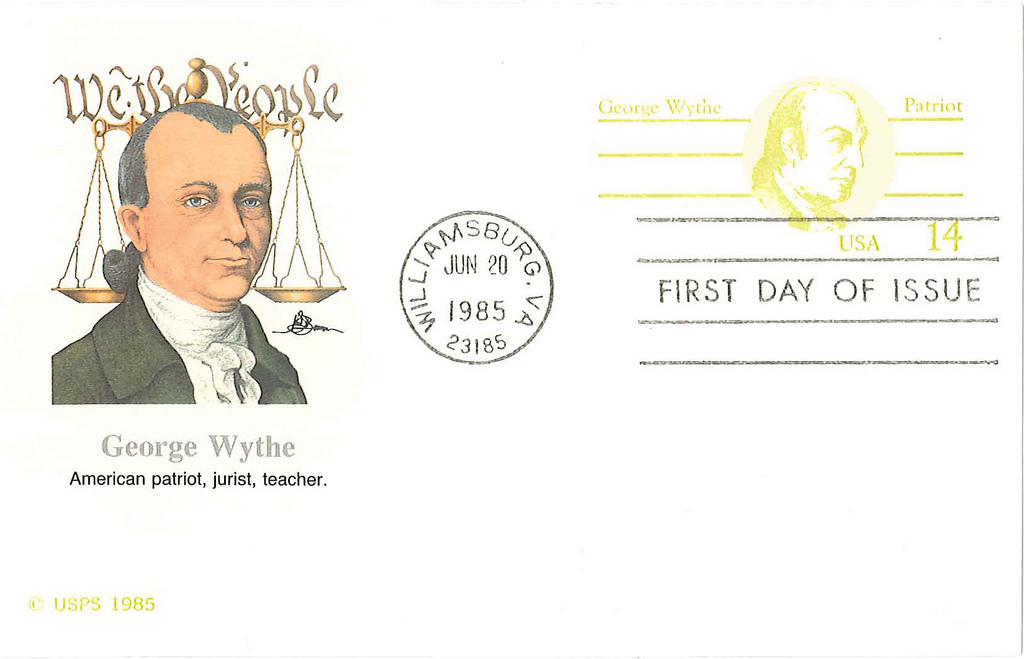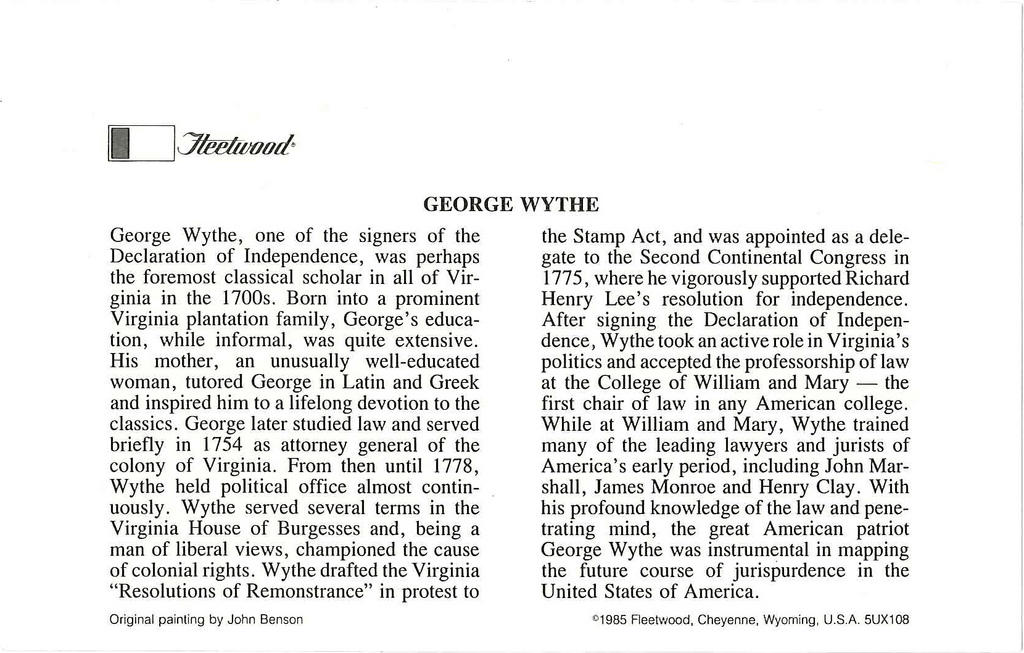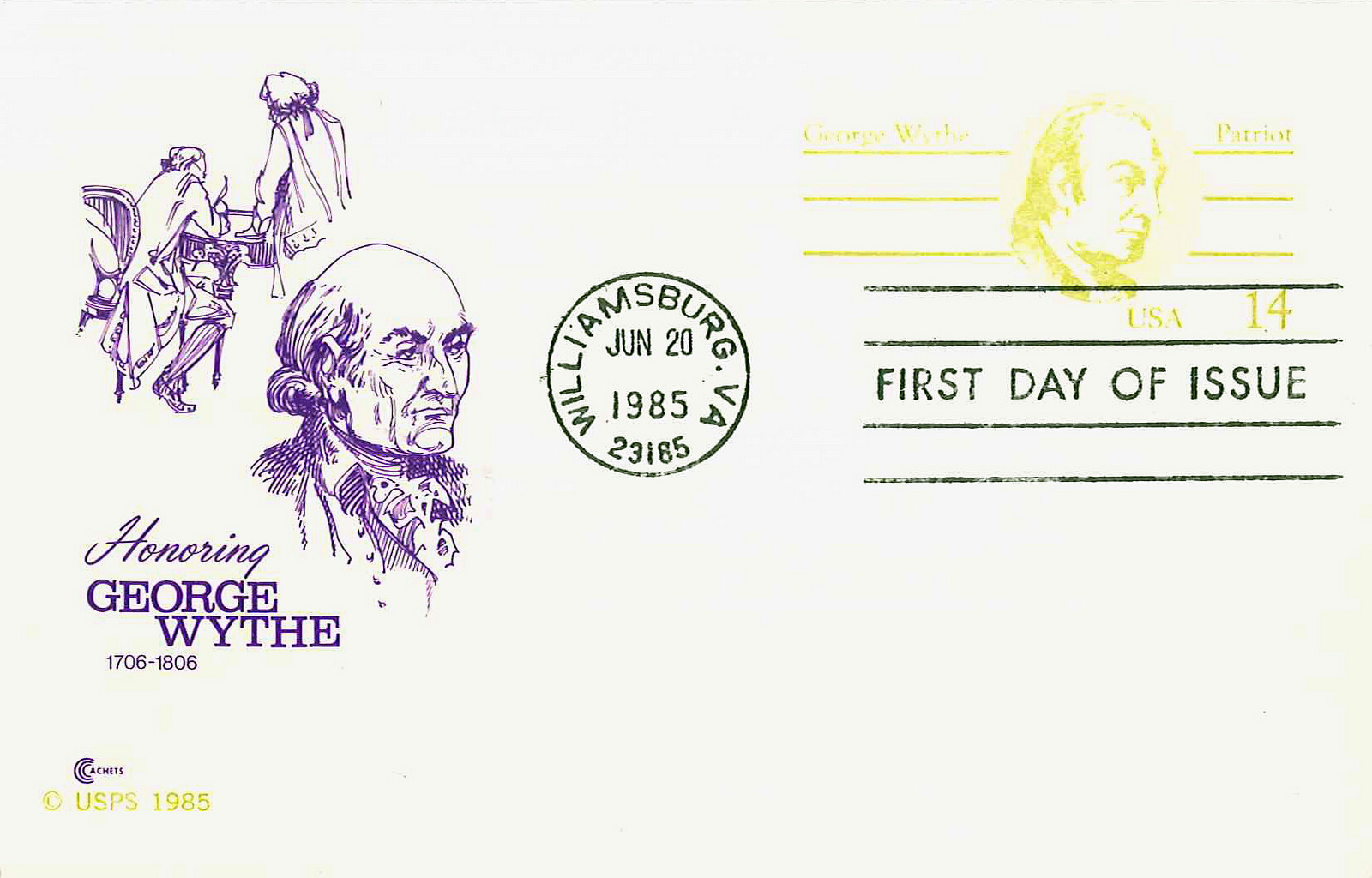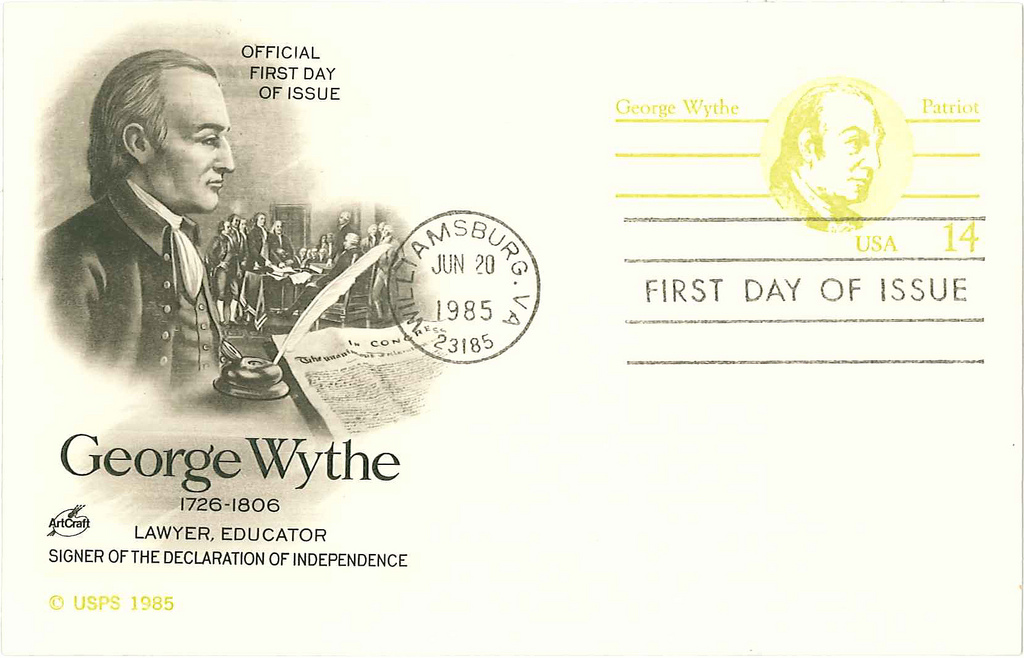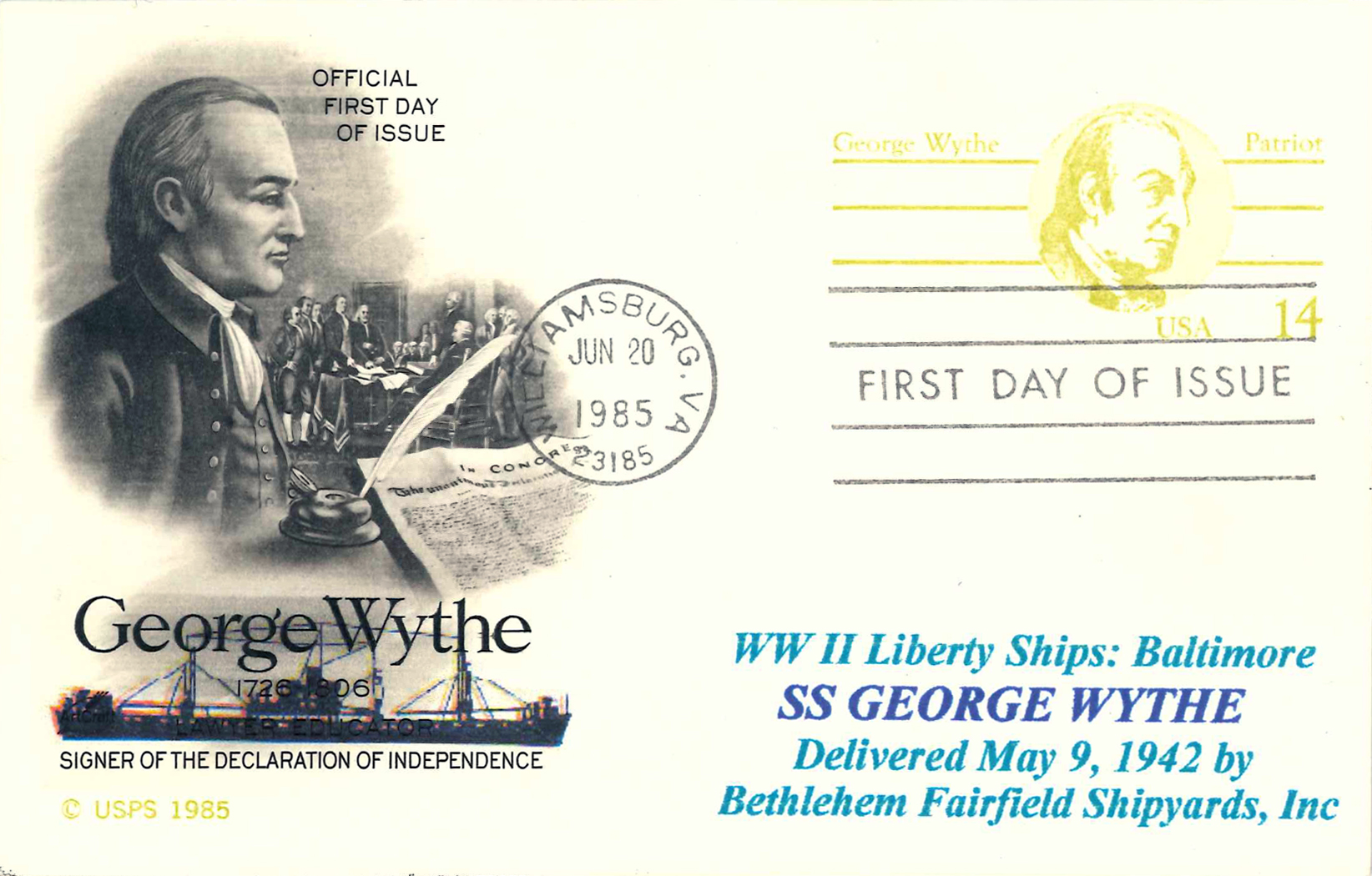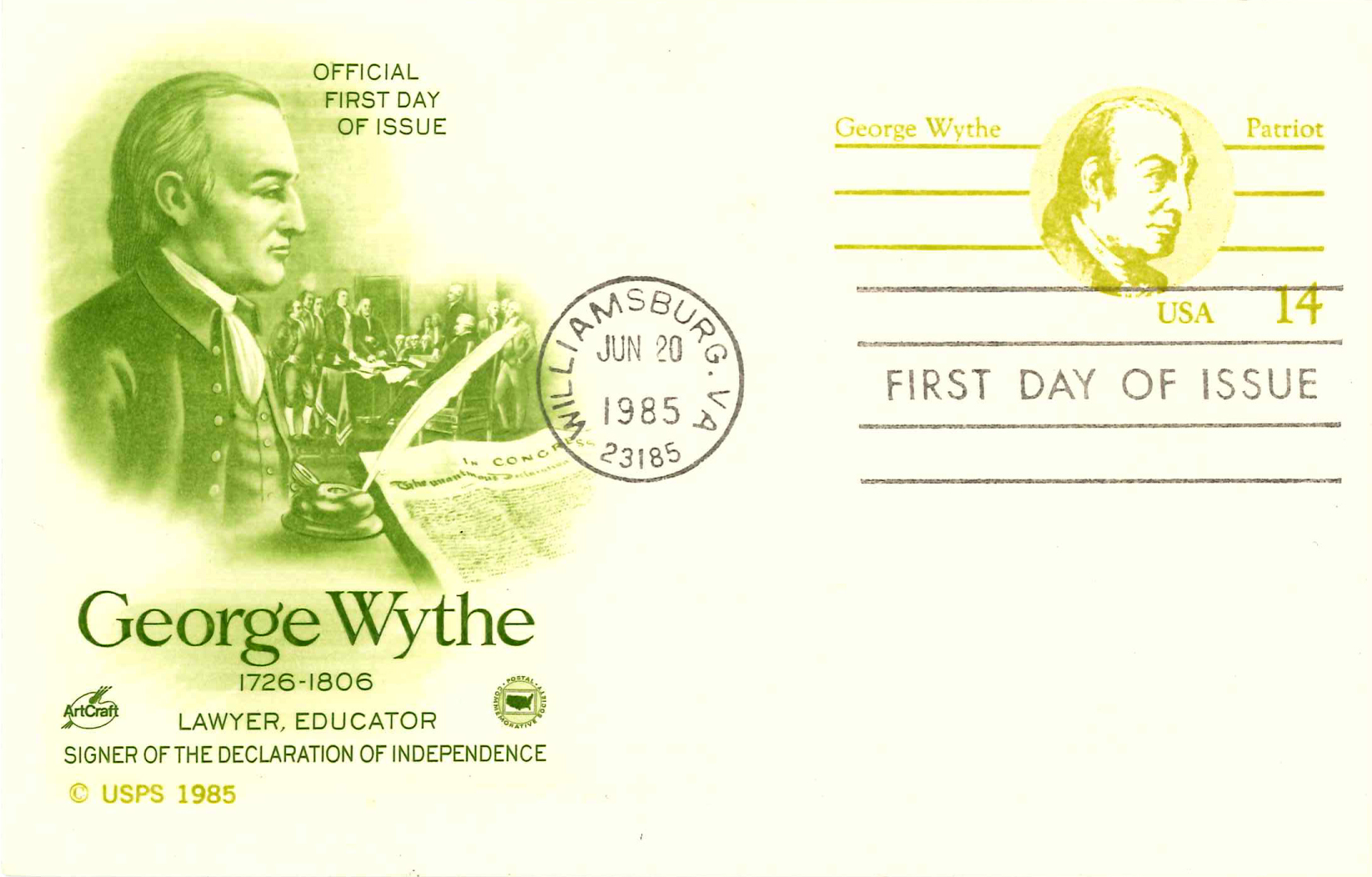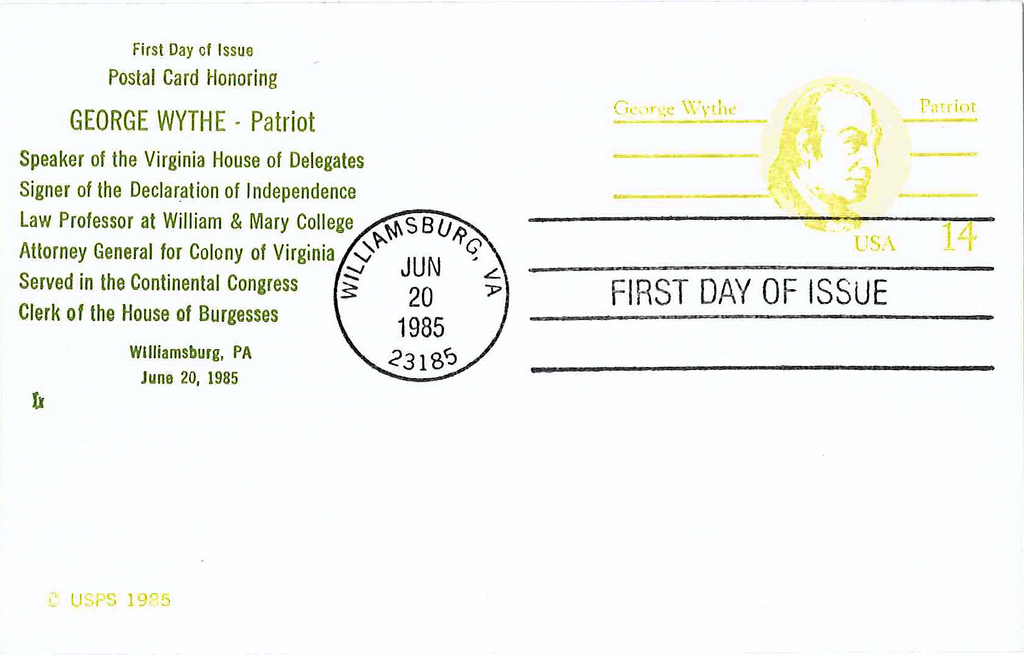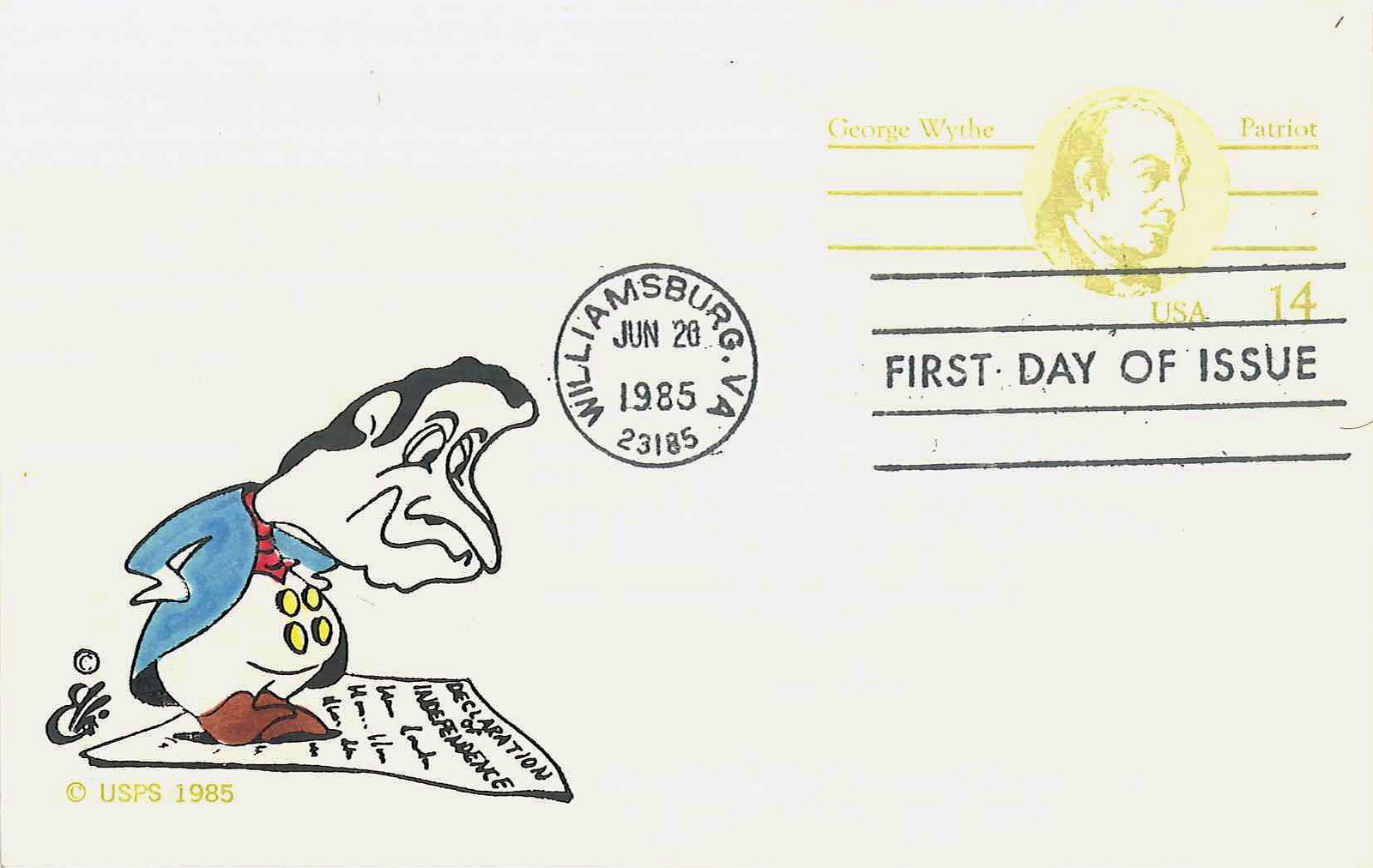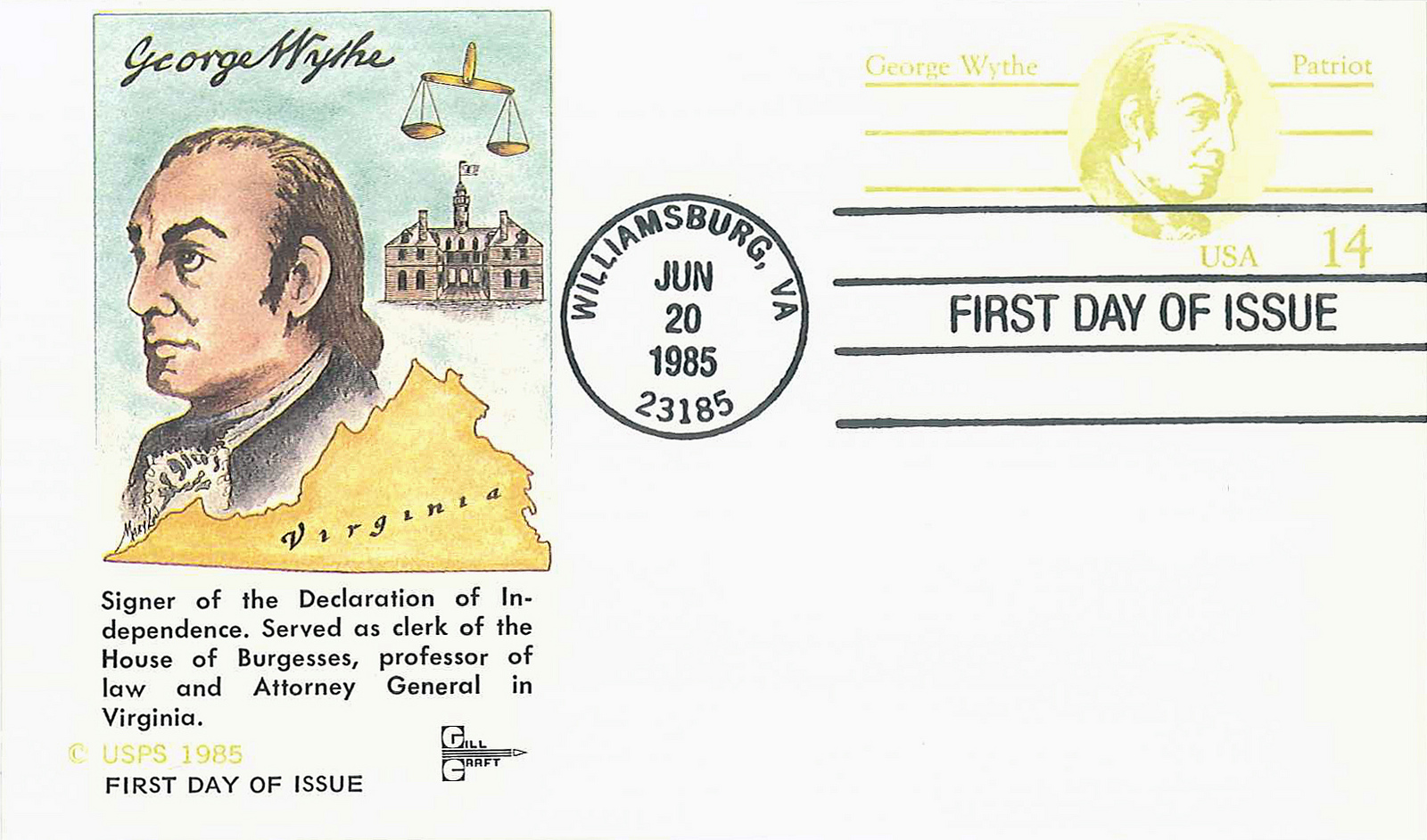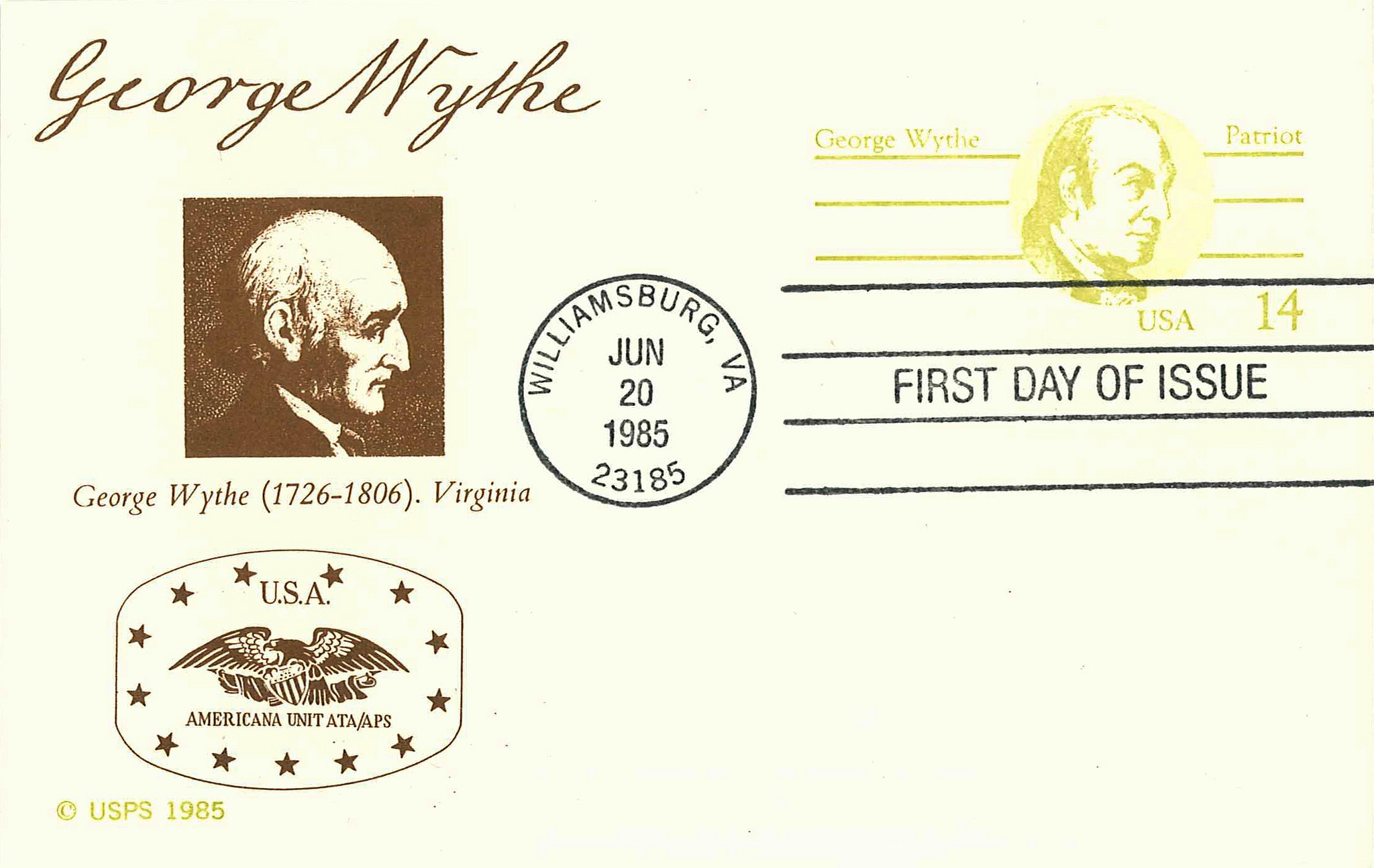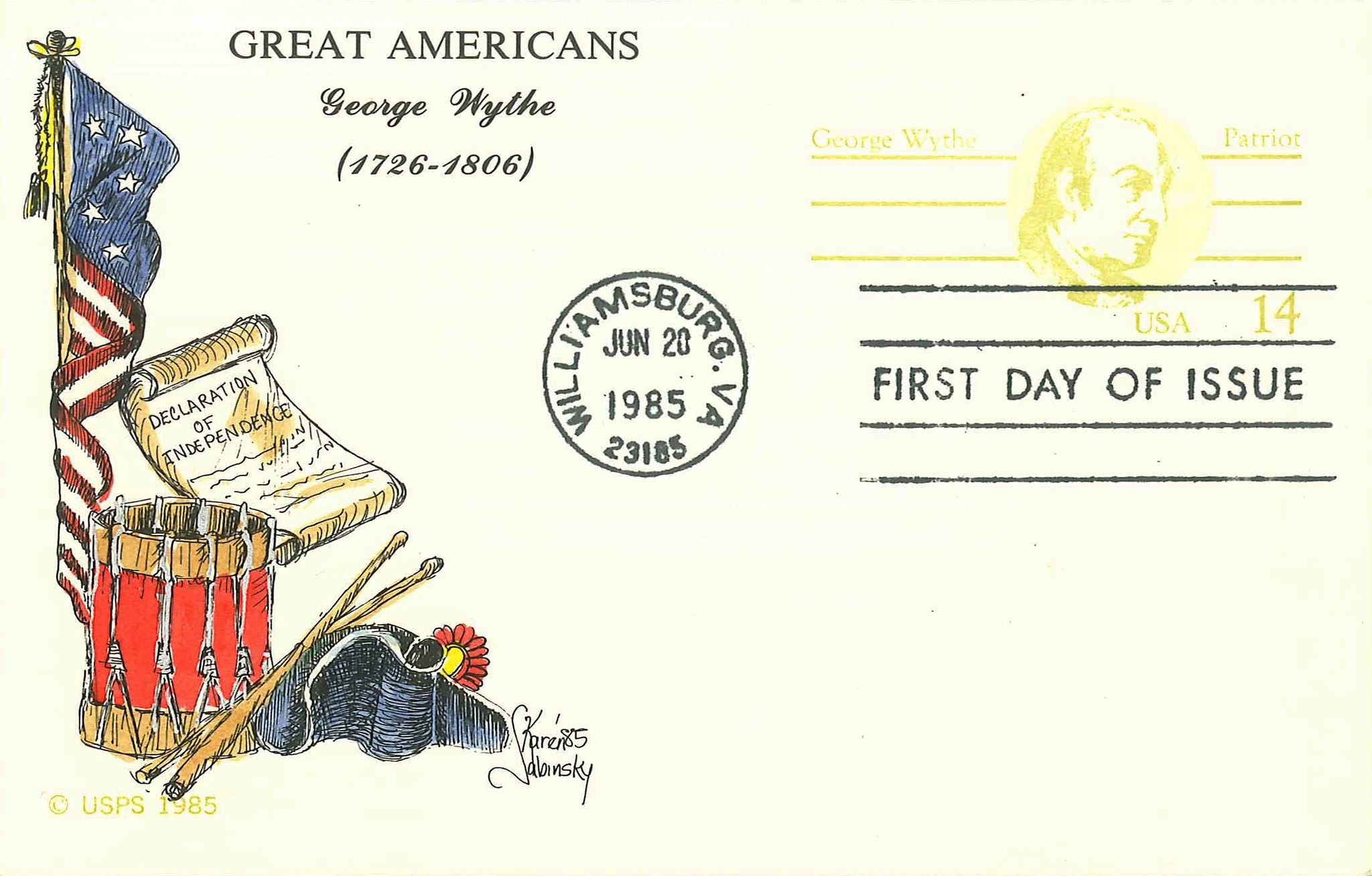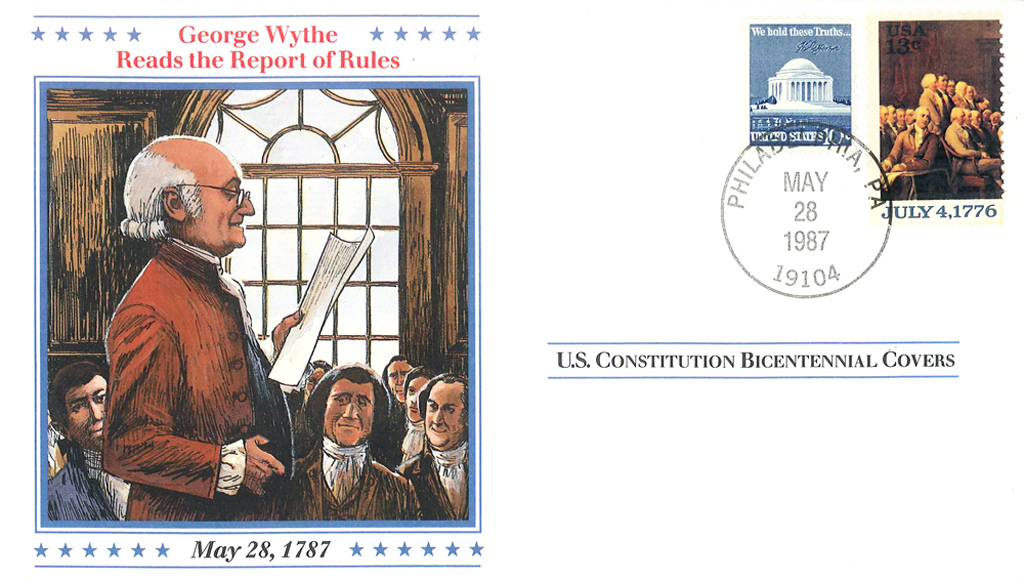Bicentennial Postcards
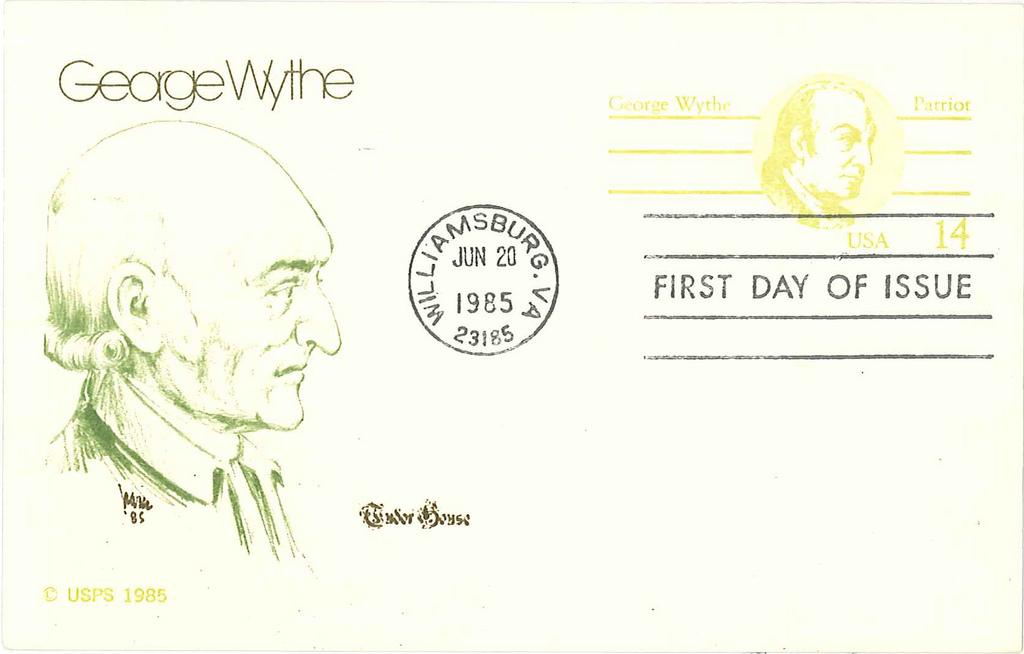
The United States Postal Service celebrated the U.S. Bicentennial of 1976 by issuing the American Patriots Series of postal stamps, cards, and souvenir sheets. The series honored individuals who were integral in the formation of the young country in 1776. From 1971 to 1985, the Postal Service issued 30 postcards depicting individuals such as Paul Revere, Samuel Adams, and Nathan Hale.
On June 20, 1985, George Wythe was added to the collection. The printed 14¢ Wythe stamp included the words "George Wythe — Patriot," and featured a print of John Ferguson Weir’s portrait of Wythe, which still hangs in Independence National Park, in Philadelphia, Pennsylvania.
A "cachet" on an envelope or postcard is a design or inscription to commemorate a postal or philatelic event, intended to compliment or give more information about the stamp. Each postcard in the collection has a cachet which depicts Wythe in a unique way, emphasizing various aspects of his life and contributions to the early United States. Here, the cancellation stamps are marked as First Day of Issue cancel, which means that they were never sent, but were obtained from the postmaster on the date which the stamp was first introduced.
Constitutional Bicentennial
In 1987, this envelope (pictured) was issued in honor of the Bicentennial of the Constitution of the United States. The envelope features George Wythe reading a report of the Rules Committee at the Constitutional Convention held in Philadelphia, Pennsylvania, in 1787. It is accompanied by a card with the following description:
George Wythe Reads the Report of Rules
Monday, May 28th, was the first real working session of the Convention. The keynote of the day was Virginia's George Wythe reading the report of the Rules Committee, which had been formed during the inaugural session, and which had worked out its rules over the weekend.
Now sixty years old, Wythe was a signer of the Declaration of Independence and the first professor of law at the College of William & Mary. He had been chosen to head the Rules Committee because of his well-known reputation for objectivity and justice. The rules of debate he proposed were simple and fair. They demanded courtesy among the delegates and assured that every delegate could fully express himself on every issue.
As amended by the convention, the rules allowed delegates to return to subjects which had already been decided, and insisted that the proceedings be kept completely secret. The first measure permitted the frequent revisions which make the Constitution the ample document that it is. The latter guaranteed that the delegates could speak freely without fear of outside interference.
Thus, for the nearly four months that the Constitutional Convention lasted, the delegates met in total secrecy. And despite the intensity of the opposing views presented, the speculations of the press, and the anxious curiosity of the public...not a single delegate ever broke the silence.
The classic speaker's stand depicted in this 2¢ 1977 commemorative stamp honors America's dedication to freedom of speech. The right to speak freely without interference from cumbersome parliamentary rules was a significant aspect of the Constitutional Convention.
May 28, 1787: Philadelphia, Pennsylvania
